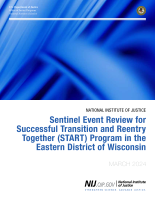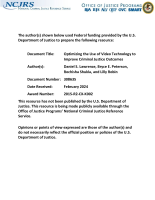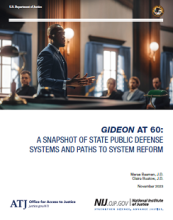Webinar Transcript: NIJ FY 2024 Research and Evaluation on School Safety
This webinar provided information on the NIJ FY 2024 Research and Evaluation on School Safety solicitation. In collaboration with BJA, this solicitation will seek applications for rigorous research and evaluation projects to fill knowledge gaps in two topical areas:
- Studies on the root causes and consequences of school...





